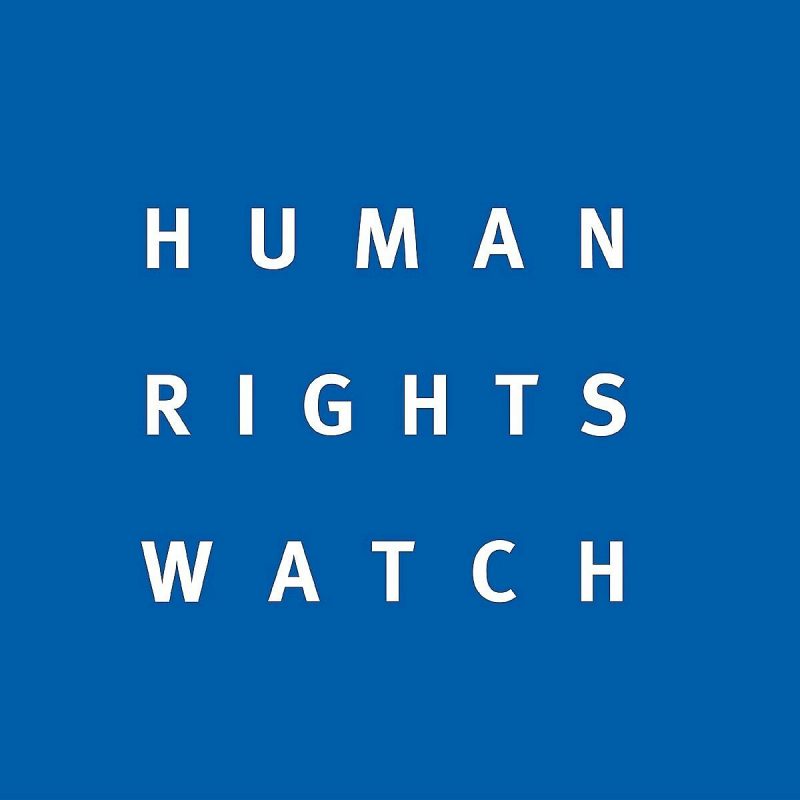Saudi Arabia’s new mass arrest of 298 government employees on suspicion of corruption raises human rights concerns, Human Rights Watch said today. Saudi authorities should immediately reveal the legal and evidentiary basis for each person’s detention and make certain that each person detained can exercise their due process rights.
Saudi Arabia’s previous corruption crackdown, in November 2017, included the detention of dozens of prominent businessmen, royal family members, and current and former government officials for three months at the Ritz Carlton Hotel in Riyadh. While the people were in detention, the authorities pressured them to hand over assets to the state in exchange for their release, outside of any recognizable legal process. Some of those detained in November 2017 remain in detention without charge, including Turki bin Abdullah, the son of the late King Abdullah and the former governor of Riyadh; Adel al-Fakih, a former minister; and Bakr Binladin, a construction mogul.
“The fight against corruption is no excuse for flagrant due process violations and preventing people from mounting an adequate defense,” said Michael Page, deputy Middle East director at Human Rights Watch. “Given their track record of abuse, the Saudi authorities should make fundamental reforms to the justice system to ensure that the accused will not be railroaded in unfair legal proceedings.”
On March 15, 2020, Saudi Arabia’s official government news agency announced the new arrests, stating that the Saudi state corruption watchdog had criminally investigated 674 state employees and ordered the detention of 298 for “financial and administrative corruption, consisting of bribery crimes, embezzlement and waste of public money, misuse of employment powers, and administrative misuse.” Among those detained are current and retired military officers, health officials, security officers under the Interior Ministry, and judges. The statement said that the acts of corruption amounted to 379 million Saudi Riyals ($101 million).
During the previous round of corruption arrests, Saudi Arabia flagrantly violated the rights of prominent Saudi businessmen, royal family members, and government officials held at the Ritz-Carlton Hotel between November 2017 and February 2018. The authorities pressured detainees to hand over their assets in exchange for their release, and many detainees made deals, media reported. In March 2018, the New York Times reported that Saudi authorities used physical abuse to coerce detainees to hand over assets, stating that at least 17 detainees had required hospitalization.
On January 31, 2018, the Saudi Press Agency released a statement by the royal court saying that the anti-corruption committee, led by Crown Prince Mohammad bin Salman, had “concluded its tasks” after summoning 381 people to give evidence. The statement said that those not indicted on corruption charges had been released, while 87 had agreed to settlements and 56 had been refused settlements and remained in custody “to continue the investigations process.” The statement said that the authorities had referred 8 others to the public prosecutor after they refused to settle. The statement concluded that “more than SR400 billion (US$107 billion) was retrieved to the state treasury in the form of real estate, companies, cash, and other assets.” Saudi officials have released no additional information about corruption prosecutions stemming from these arrests or those who remain in detention such as Turki bin Abdullah.
An informed source close to six of the detainees held in the Ritz-Carlton told Human Rights Watch that even though most of the detainees reached settlements and were released, they remain tightly monitored by authorities, even those who returned to their previous positions in their companies or in managing financial assets. He said that in some cases the authorities have forced former detainees to involuntarily return to their former companies or positions or and compelled them to accept new roles.
International human rights law protects basic rights, including the right not to be arbitrarily detained. Any charges authorities bring must resemble recognizable crimes. At a minimum, those detained should be informed of the specific grounds for their arrest, be able to fairly contest their detention before an independent and impartial judge, and have access to a lawyer and family members, and their case should be periodically reviewed.
“Saudi authorities are declaring that they want to take on the scourge of corruption, but the right way to do that is through diligent and fair judicial investigations against actual wrongdoing, not sensationalistic mass arrests without due process,” Page said.



 العربية
العربية